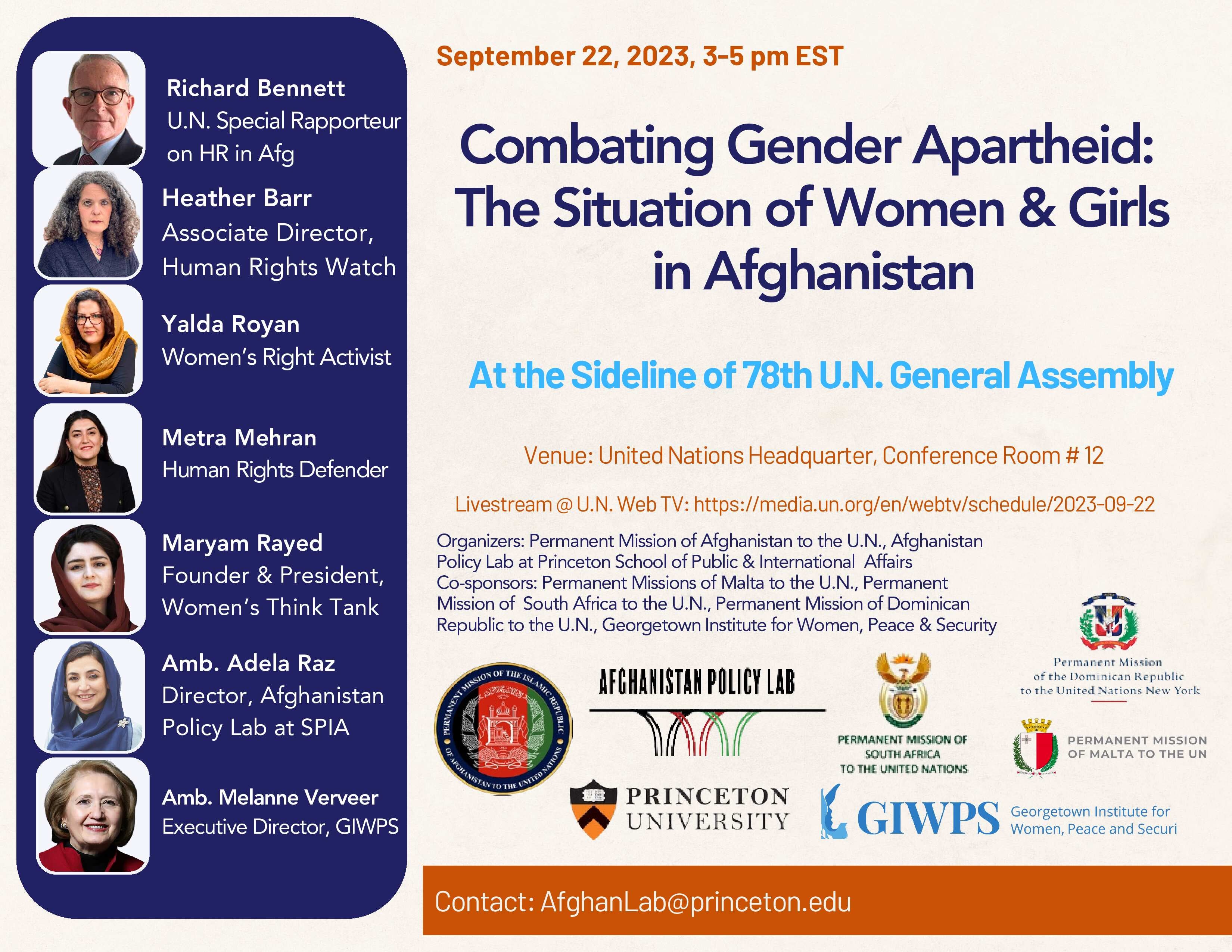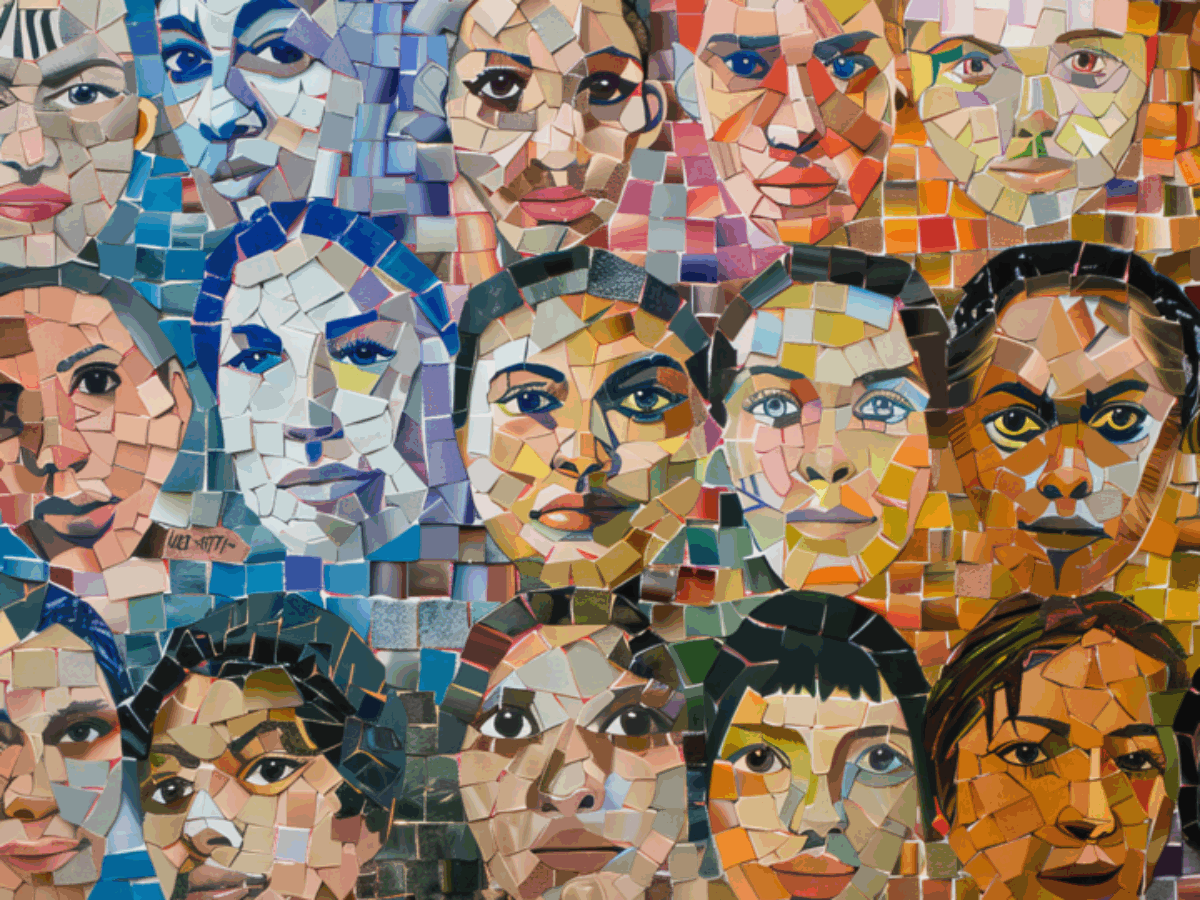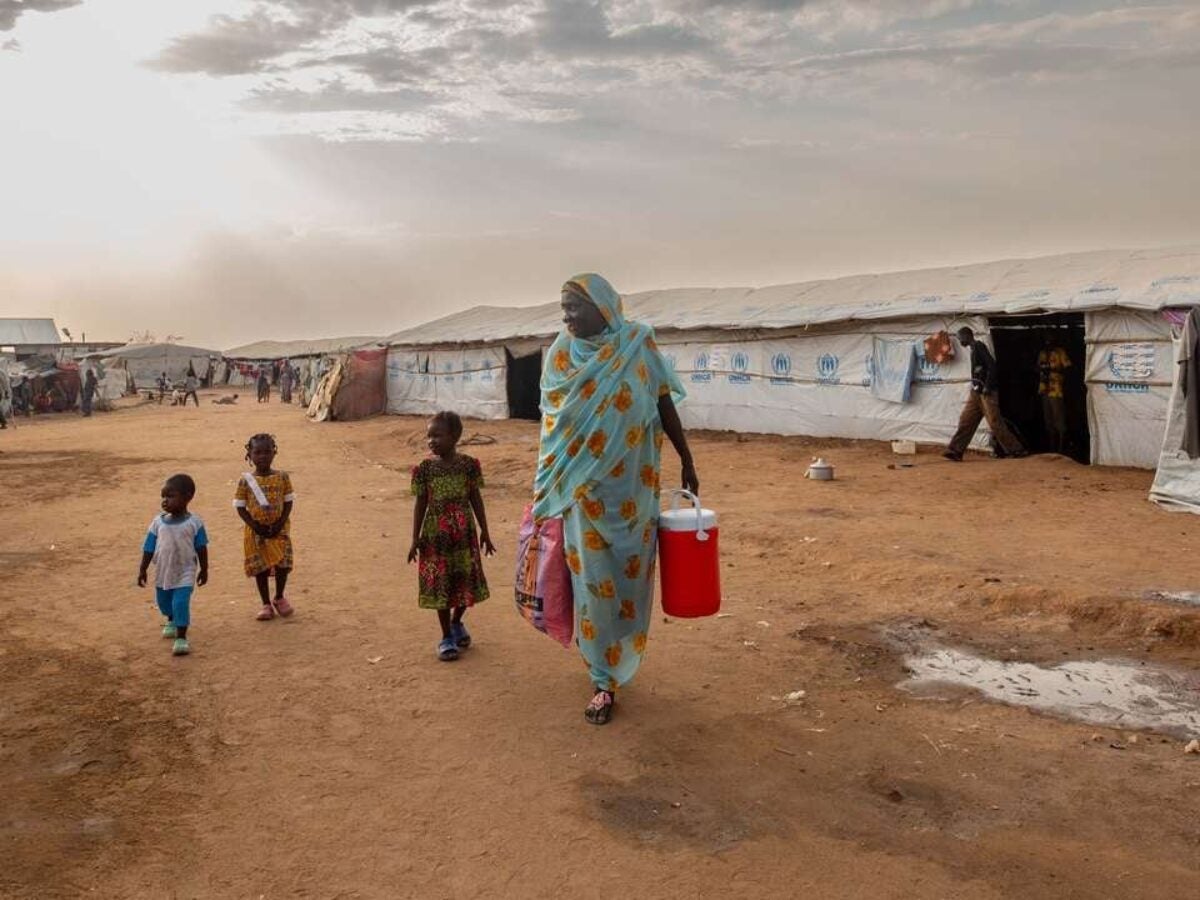Combatting Gender Apartheid: The Situation of Women & Girls in Afghanistan
Event Details
September 22, 2023
Event Overview
On the Sidelines of the 78th UN General Assembly
Friday, September 22, 2023
3:00 PM – 5:00 PM
United Nations Headquarters, Conference Room 12
Click here to watch the live stream.

Featuring:
Heather Barr, Associate Director of the Women’s Rights Division at Human Rights Watch
Richard Bennett, Special Rapporteur on the Situation of Human Rights in Afghanistan
Metra Mehran, Fellow with NYU’s Center for Global Affairs, Social Entrepreneur and Human Rights Activist
Maryam Rayed, Founding Director of Afghanistan Women’s Think Tank
Amb. Adela Raz, Last Ambassador and Permanent Representative of the Islamic Republic of Afghanistan to the United States and the United Nations (respectively), and Director of Afghanistan Policy Lab at the Princeton School of Public and International Affairs
Yalda Royan, Senior Development Professional and Women’s Rights Activist
Moderated by: Amb. Melanne Verveer, Executive Director of the Georgetown Institute for Women, Peace and Security
More speakers to be announced
The event is co-organized by the Afghanistan Policy Lab at the Princeton School of Public and International Affairs and the Permanent Mission of Afghanistan to the United Nations, and in co-sponsorship with the Permanent Missions of Malta, South Africa, and the Dominican Republic to the U.N., as well as the Georgetown Institute for Women, Peace, and Security.
The resurgence of the Taliban regime in Afghanistan has marked a significant turning point, rekindling profound concerns about the rights and prospects of the Afghan population, with a particular focus on the vulnerable status of women and girls. This event aims to examine why today’s Afghanistan is a state of “Gender Apartheid” and shed light on the pressing issues pertaining to women’s rights and human rights under the Taliban regime. As the international community gathers for the United Nations General Assembly, it becomes increasingly imperative to confront the multifaceted challenges faced by Afghan women and to ardently champion their fundamental rights and dignity. Under the Taliban regime, Afghan women find themselves grappling with a multitude of challenges that culminate in their almost complete elimination from society. These challenges are deeply ingrained and encompass various aspects of women’s lives, reflecting a systemic Gender Apartheid.
Their decision to bar girls from middle school through higher education has led to the closure of schools and the erosion of educational opportunities. Women’s ability to engage in gainful employment outside their homes has been significantly curtailed, as such that recently women’s beauty salons were shut by the Taliban which not only limits an additional space of social gatherings for women, but also deprives around 60,000 women of livelihoods. This not only undermines their economic independence but also contributes to rising poverty rates among Afghan families.
Movement restrictions by the Taliban, with the need for a male chaperone have drastically limited women’s mobility and autonomy. These measures confine women to their homes and severely restrict their participation in public life. Meanwhile, the dearth of accessible healthcare facilities and skilled medical providers places Afghan women at a considerable disadvantage. This is particularly true in terms of maternal and reproductive health, exacerbating health risks for women. The erosion of legal safeguards has left women vulnerable to violence and abuse, with minimal avenues for seeking justice or protection. This leads to a culture of impunity for perpetrators. The suppression of women’s voices, talents, and contributions has not only stripped them of their cultural and social significance but has also exacerbated a cycle of marginalization and silencing.
More Upcoming Events

Oslo Launch of the Fifth Edition of the Women, Peace and Security…
